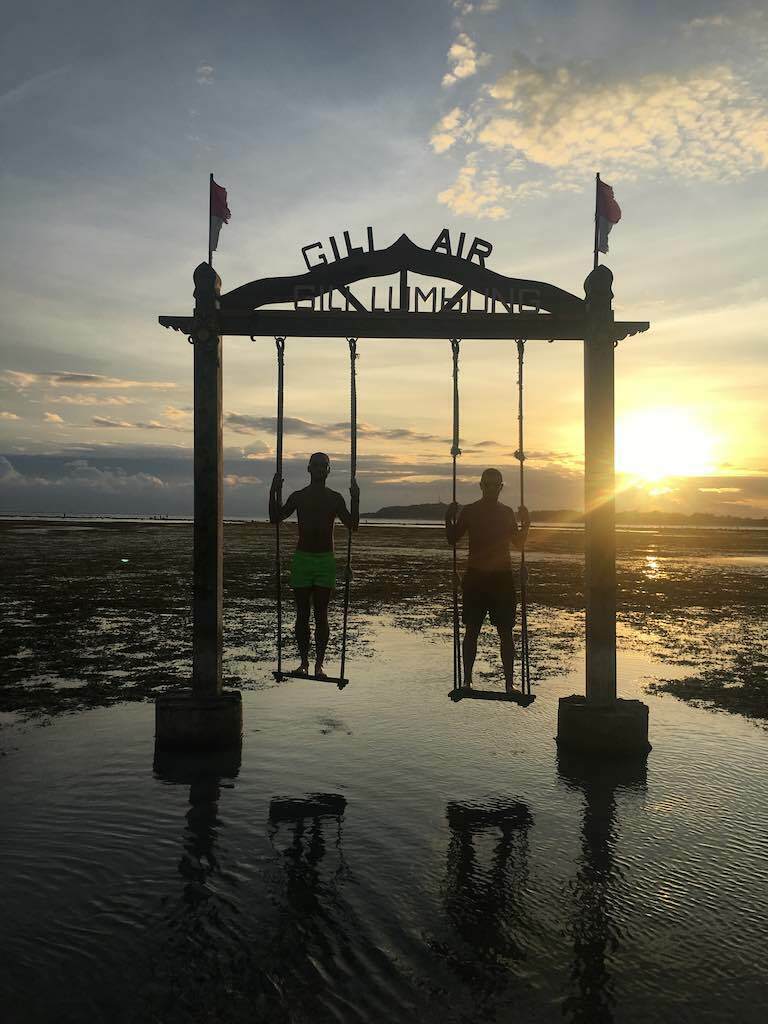One of the most remarkable features of the Gili Islands is their pristine beaches with powdery white sand and crystal-clear waters that are perfect for snorkeling and diving. The underwater world is indeed a kaleidoscope of colorful coral reefs, sea turtles, and diverse marine species, making it a hotspot for aquatic enthusiasts.
These islands have consciously embraced eco-friendly and sustainable practices, with restrictions on motorized vehicles, a ban on single-use plastics, and the promotion of renewable energy sources. All these efforts help preserve the natural beauty that has made the Gili Islands a beloved destination for eco-conscious travelers.
Whether you seek adventure or relaxation, the Gili Islands offer a little piece of paradise that’s hard to resist. With their picturesque landscapes and a commitment to sustainability, they remain a top destination for those in search of an authentic island experience in Indonesia.
Which Gili island to visit : Trawangan, Meno or Air?
Gili Trawangan, the largest of the three, is often dubbed the “party island.” It offers a lively nightlife scene, with beachfront bars and restaurants where you can watch mesmerizing sunsets. Gili Meno, in contrast, is the most serene and perfect for honeymooners or anyone looking for tranquility. Finally, Gili Air strikes a balance between the two, making it ideal for couples, families, and solo travelers alike.
It is worth noting that the tourism landscape in the Gili Islands has been impacted by two significant events: the eruption of the Rinjani volcano in 2018 and the coronavirus crisis in 2020.
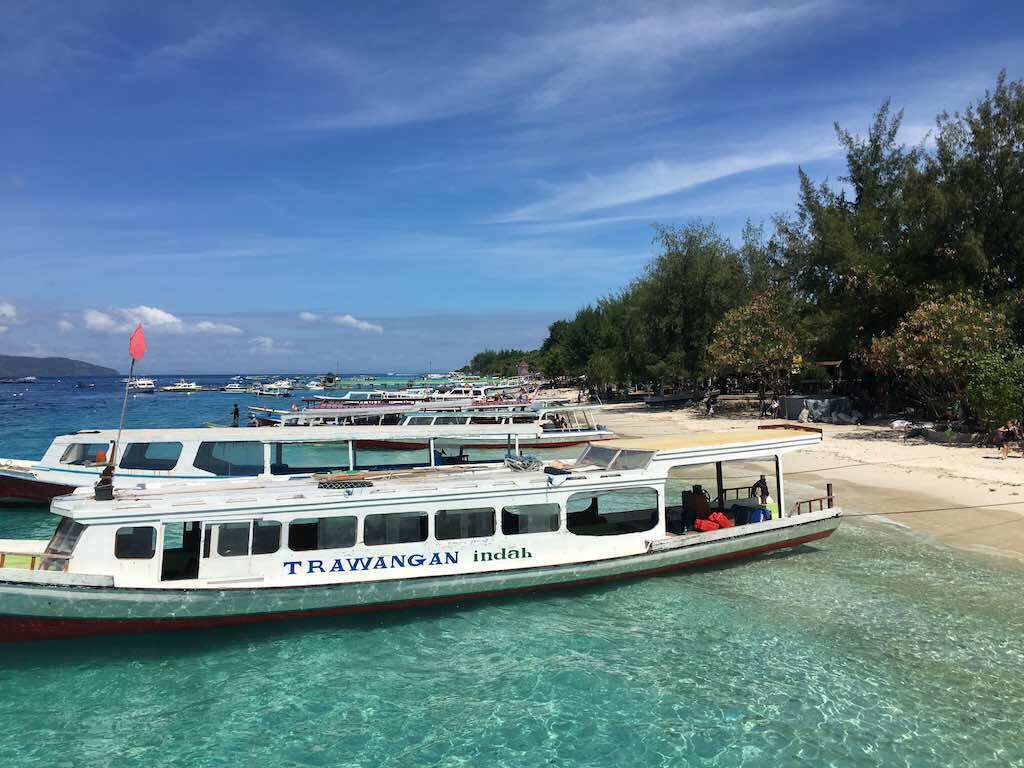
Gili Islands after Rinjani volcano eruption
The eruption had a profound impact on tourism. Many establishments, including hotels and restaurants, were severely damaged or destroyed. Tourists faced anxieties after the earthquakes and tsunami warnings, with limited high ground. Tragically, there were about 100 casualties, including 7 Indonesian tourists in Gili Trawangan. The traumatic experiences of the 2,000 evacuated foreigners have made many rethink their travel plans to the Gilis in 2018 and 2019.
Tourist infrastructures
Tourism emerged on the Gili Islands approximately three decades ago, which prior to that, were uninhabited. The 3 islands have evolved from quiet, secluded retreats to popular tourist destinations, and the infrastructures have adapted to cater to this influx of visitors. Accommodations on the Gili Islands have grown exponentially, offering a range of options from budget-friendly hostels to luxurious resorts. Many eco-friendly lodgings have also emerged, emphasizing sustainability in line with the islands’ conservation efforts.
Dining options are abundant, with restaurants serving local Indonesian cuisine, fresh seafood, and international dishes to suit diverse palates. Beachfront bars and cafes provide scenic spots for sunset watching, contributing to the islands’ laid-back atmosphere. Transportation within the Gilis primarily relies on bicycles and horse-drawn carts, as motorized vehicles are prohibited. These eco-friendly modes of transport enhance the islands’ charm and commitment to sustainability.
The islands offer an array of water-based activities, including snorkeling, diving, and paddleboarding, with rental shops and diving schools readily available.
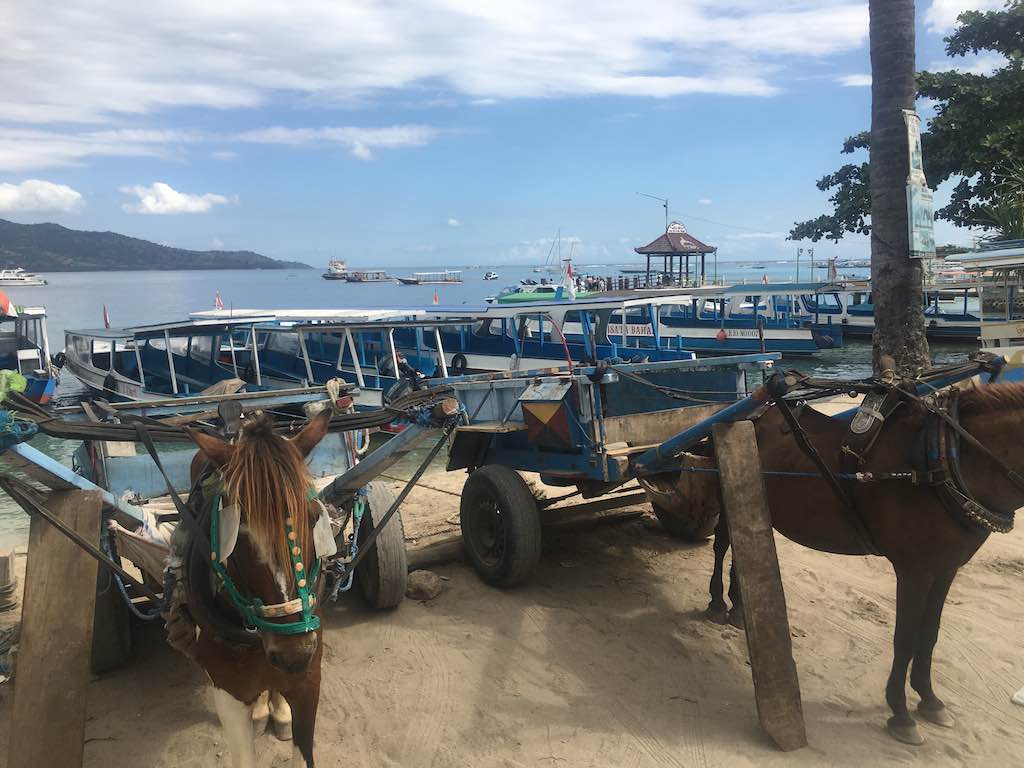
Scuba diving and snorkeling
Sadly, the Gili Islands’ coral reef has suffered severe damage from tourism and dynamite fishing practices. But scuba divers will appreciate the crystal-clear waters, vibrant coral reefs, and diverse marine life. The coral gardens surrounding the Gilis are brimming with colorful fish, turtles, reef sharks. With dive sites suitable for all skill levels, beginners and advanced divers can explore the underwater treasures. The famous “Turtle Heaven” and “Shark Point” are must-visit spots where encounters with these incredible creatures are practically guaranteed.
For snorkelers, the Gili Islands present an equally enchanting world. The shallow reefs are easily accessible from the shore, making it convenient for anyone to don a mask and snorkel to discover the beauty beneath the surface. Whether you’re strolling from the beach or venturing further offshore, you’ll be greeted by mesmerizing coral formations, playful sea turtles, and schools of fish in a kaleidoscope of colors.
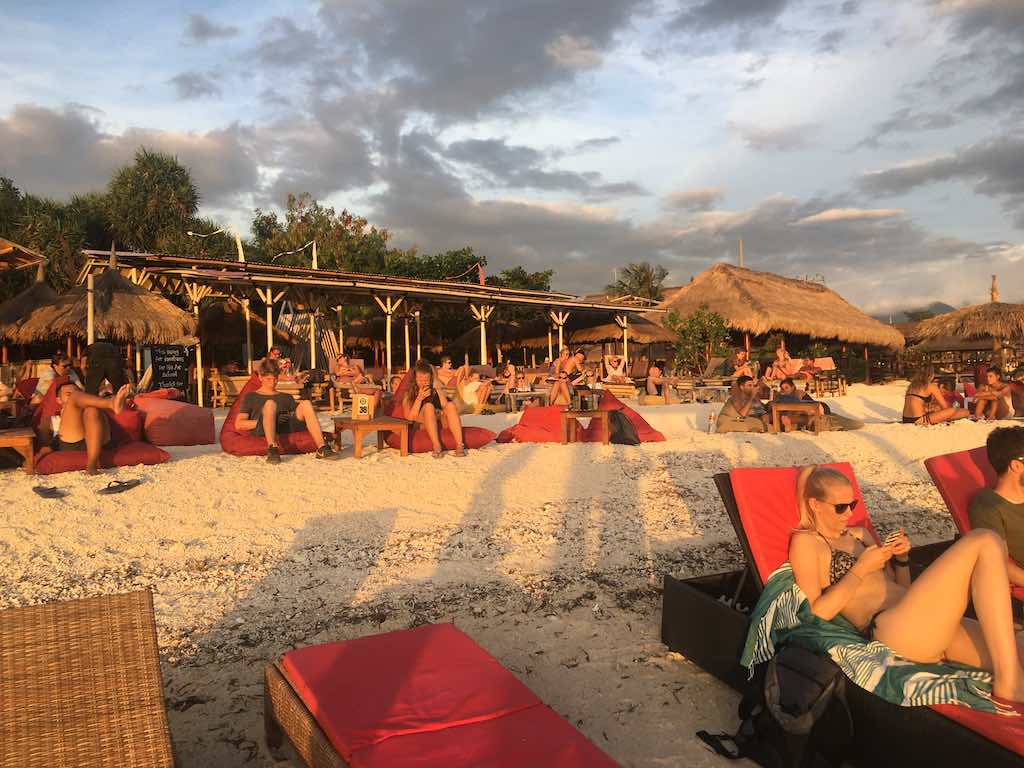
Beach
The beaches on the Gili Islands are undeniably stunning and offer the classic picture-perfect sandy beach on a remote island. The sunsets are equally breathtaking, and many bars provide the perfect ambiance with relaxing lounge music. With their soft, powdery white sands, crystal-clear turquoise waters, and swaying palm trees, Gili islands beaches offer a postcard-perfect setting for relaxation and adventure.
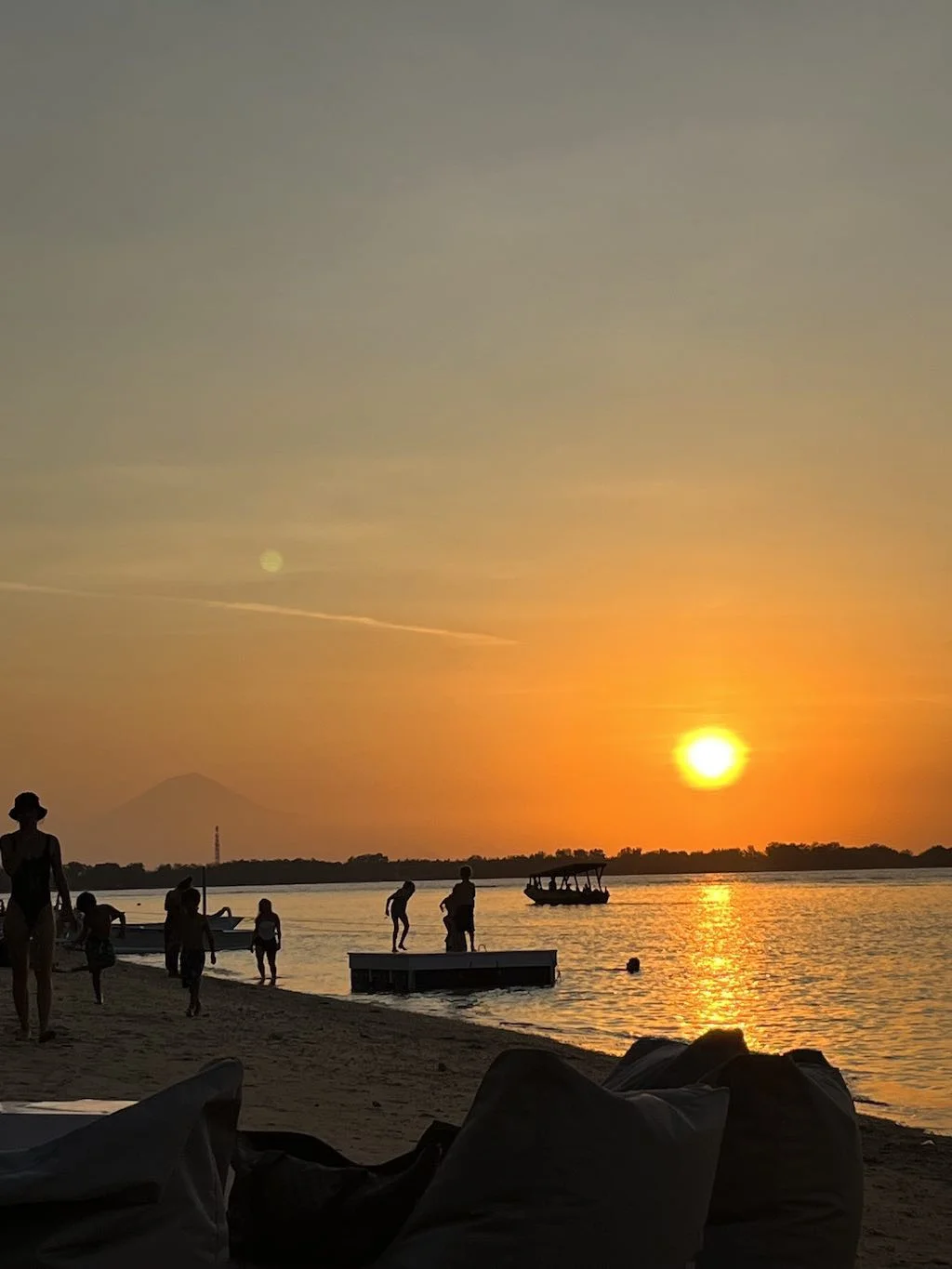 Boat connections from Bali
Boat connections from Bali
Multiple fast boat services operate between Padang Bai in Bali and the Gili Islands, providing convenient access. The journey typically offers stunning sea views, and the boats are equipped with modern amenities, ensuring a comfortable voyage if the sea is not too rough. Most of the fast boat go to Lombok after reaching the Gilis.
Reaching the Gili Islands can be time-consuming if you opt for an all-inclusive ticket from your hotel in Bali. Instead, I recommend traveling to Padang Bai on your own and taking a fast boat directly to the Gilis. The trip typically takes 2.5 hours, provided the sea conditions are favorable. One of the best options is Eka Jaya, which offers daily service between Nusa Penida, Bali, the Gilis and Lombok. Eka Jaya uses spacious and comfortable fast boats that are equipped with four powerful engines, so you can travel quickly and comfortably. The boats are 23 meters long and can accommodate up to 210 passengers.
Flying to Lombok
Another option is to fly to Lombok and visit Kuta Lombok before heading to the Gilis. Keep in mind that this option will be more expensive. And that the airport is anyway pretty far away from Kuta and from Bangsal.
